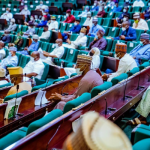A Gambian legislator has introduced a bill seeking to overturn the Women’s (Amendment) Act of 2015, which prohibited circumcision and other forms of female genital cutting.
The bill was introduced in the national assembly for a first reading in March.
Circumcision is the cutting or alteration of the external female genital organs for non-medical purposes.
Under current Gambia law, a person convicted of conducting FGM risks up to three years in prison, a 50,000 dalasi (£622) punishment, or both.
Where FGM results in death, the culprit may face life in jail, according to the law.
However, the bill sponsor Almameh Gibba is among those in the country who firmly believe that FGM is not only cultural but a religious rite as well.
The Gambian population is predominantly Muslim.
The problem is complex in Islam; some scholars have prohibited FGM while others do not.
Since the prohibition was implemented about a decade ago, there have been continuous discussions in the country.
Three women were convicted of FGM in August of last year, in the first prosecution under the 2015 statute.
One of The Gambia’s most powerful clerics backed them.
Seedy Njie, the Gambia’s National Assembly Deputy Speaker, told the Standard newspaper that the majority caucus is determined to oppose the bill.
According to the WHO, more than 200 million girls and women alive today have undergone female genital mutilation (FGM) in 30 countries in Africa, the Middle East and Asia where FGM is practiced.













